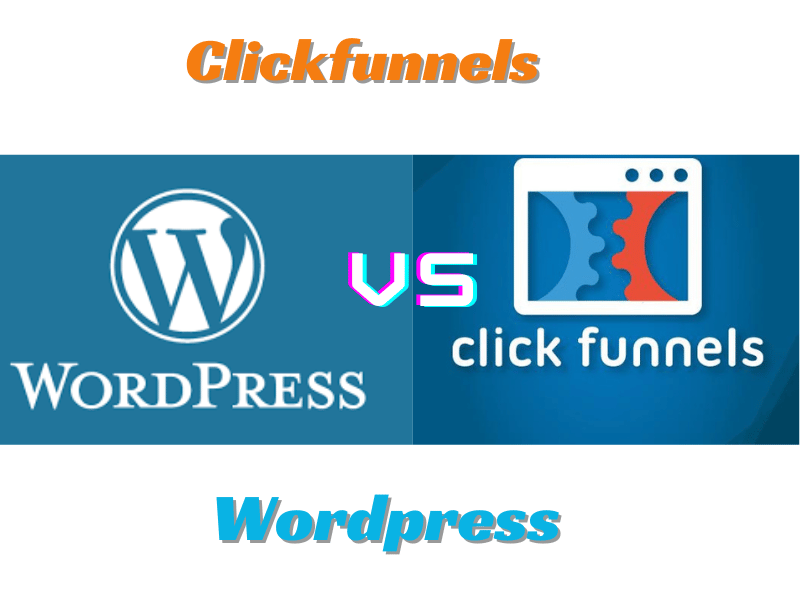ClickFunnels vs WordPress: The Ultimate Guide for Your Online Business
Choosing the right platform for your online venture can be tricky. With so many options, understanding each platform’s features and limitations is key. This guide talks about ClickFunnels and WordPress, two big players in the online game. Each has its strengths, but which one fits your business best? Let’s find out!
Key Points:
- ClickFunnels for Sales Funnels: Makes creating sales funnels a breeze. Perfect for converting visitors into customers quickly, without getting bogged down in coding.
- WordPress for Customization: The king of customization. Build anything from simple blogs to complex online stores. Offers tons of control over how your site looks and works.
Understanding ClickFunnels and WordPress
ClickFunnels in a Nutshell
ClickFunnels simplifies ClickFunnels sales funnels. It’s ideal for those who want to efficiently turn visitors into customers, without the hassle of web development. Its drag-and-drop builder and library of templates streamline the process, making it a favorite for entrepreneurs focused on getting more sales.
WordPress in a Nutshell
On the other hand, WordPress is the go-to platform for customization. With thousands of themes and plugins, you can build anything from a blog to a full-blown online store. Its flexibility and ability to grow with your business have made it a favorite for creators and businesses of all sizes.
Elementor vs Clickfunnels
Elementor excels at crafting beautiful custom pages within WordPress websites, while ClickFunnels specializes in building targeted sales funnels with pre-built templates. Choose Elementor for design flexibility and SEO on your WordPress site, or pick ClickFunnels for conversion-focused sales funnels with a streamlined workflow. The basic version of elementor is free, with paid plans offering more features and design options in elementor pro. Clickfunnels has Subscription-based pricing. Can be more expensive than Elementor, especially for long-term use.Both are user-friendly, but Elementor offers more design customization, which might require some basic web design knowledge.
Beaverbuilder vs Clickfunnels
Beaver Builder shines for design flexibility and SEO within WordPress. It lets you create custom pages on your existing site, while ClickFunnels focuses on separate sales funnels with templates. This makes Beaver Builder more cost-effective with a one-time fee. ClickFunnels has ongoing subscription costs. While Beaver Builder requires a WordPress website (hosting and theme costs), they can be affordable. ClickFunnels eliminates the website need but has subscription fees. In the long run, Beaver Builder is cheaper.
Ease of Use: ClickFunnels vs WordPress
ClickFunnels offers a more straightforward approach to funnels. WordPress has a steeper learning curve due to its vast customization options. However, the effort you put into learning WordPress pays off with greater control over your site.

Customization and Flexibility: ClickFunnels vs WordPress
This is where WordPress shines. Its open-source nature lets you customize almost every aspect of your site. From design tweaks with themes to adding features with plugins, WordPress offers unmatched control. ClickFunnels, while offering templates, doesn’t provide the same level of customization.
SEO Power: ClickFunnels vs WordPress
When it comes to search engines, WordPress is the clear winner. Its extensive SEO tools like Rankmath SEO and Yoast SEO and other plugins help you optimize your content to be seen by more people. ClickFunnels offers basic SEO features, but it can’t compete with the powerful options available on WordPress.
Pricing and Growth: ClickFunnels vs WordPress
WordPress starts free, but the total cost can vary depending on your choices for hosting, themes, and plugins. It’s a good fit for both startups and established businesses because it’s scalable and cost-effective. ClickFunnels has a subscription model, which can be expensive as your business grows and needs more features.
Finding Help: ClickFunnels vs WordPress
Both platforms have strong support systems, but they work differently. WordPress benefits from a large community where users can find answers and resources. ClickFunnels offers more direct support through a dedicated customer service team.
My personal experience
As a fellow Elementor user for 4 years now, I can tell you the switch from ClickFunnels to WordPress was a game-changer. ClickFunnels was great for getting started with sales funnels – the templates were easy to use and helped me understand the funnel concept. But after a while, I felt stuck.
ClickFunnels felt limiting in design. You can only customize the templates so much, and I wanted something more unique for my brand. Plus, SEO was practically non-existent. My blog posts and content just weren’t getting seen.
Moving to WordPress with Elementor was like stepping into a creative playground. The freedom to design anything I could imagine was amazing. Elementor’s drag-and-drop interface is super user-friendly, and with a little extra effort, I achieved a look and feel that perfectly reflects my brand. Now, thanks to the SEO power of WordPress, my content ranks well in search engines, driving more organic traffic to my website and funnels.
FAQs
Which platform is better for SEO? WordPress is superior for SEO efforts, thanks to its advanced tools and plugins designed for optimizing content.
Can I build a sales funnel with WordPress? Yes, using plugins like CartFlows, WordPress can effectively handle sales funnels, offering more flexibility in the process.
Is ClickFunnels suitable for a complete online store? While ClickFunnels can manage product funnels well, WordPress, with WooCommerce, is better suited for managing a comprehensive online store.
